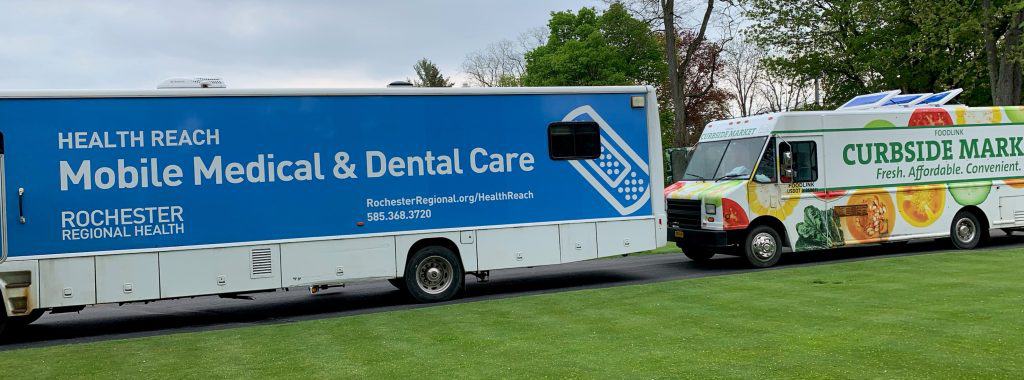“Cracking the Code on Healthcare” is a twice-annual event held in Rochester, New York, to educate business and community leaders on ways to further improve healthcare in the area.
The city of Rochester already has a leg up, serving as a model for medical efficiency and quality. Medicare data indicate that Rochester’s healthcare prices are among lowest in U.S., spending $170 per member per month less than the national average.
At the conference on May 17, signs of success were all around me. The attendees, for starters, weren’t typical for a community healthcare event. “Cracking the Code” welcomed more than 350 business leaders and practitioners—with more than 60 local CEOs joining physicians, nurses and the heads of the major nonprofit health systems in the audience.
It turns out that this level of involvement is, in fact, typical for this event, which is now celebrating its tenth year. Hosted by NorthStar Network, a consultancy and “healthcare knowledge partner” to community executives throughout Rochester, the conference reflects a broader, community-wide commitment to better health, which I found inspiring.
During my presentation titled, “Improving the Patient Experience,” I told attendees about the “Four Pillars” to a better healthcare system described in my book Mistreated: Why We Think We’re Getting Good Healthcare—and Why We’re Usually Wrong. Unlike other cities that are at the start of transformational change, Rochester already has three of the four pillars firmly in place.
1. Integration: The medical ecosystem in Rochester is well integrated, with two major health systems providing care for nearly all of the city and surrounding area. Rochester Regional Health and the university health system include hospitals with both primary- and specialty-care services that focus on coordination of medical care and community-wide collaboration.
Business leaders in the community meet each week to talk about the cost and quality of care provided to their employees, and how health can be improved. The community routinely takes on new health improvement initiatives, including those aimed at effective blood pressure management and diabetes avoidance. I was also impressed with the city’s focus on addressing the “social determinants of health,” using vans (below) to bring food, along with medical and health-related services, to those without easy access to care or proper nutrition.
 2. Healthcare technology. In Rochester, health IT is also ahead of other geographies, with all local providers linked together by a comprehensive electronic health record. This is practically unheard of for a city—a powerful point off distinction for the area.
2. Healthcare technology. In Rochester, health IT is also ahead of other geographies, with all local providers linked together by a comprehensive electronic health record. This is practically unheard of for a city—a powerful point off distinction for the area.
3. Leadership. Finally, the organizer of the program and president of NorthStar Network Linda Becker also runs the Healthcare Business Academy (HBA) Fellowship Program. This year-long intensive leadership development program welcomes about 70 fellows each year, offering monthly workshops, online learning, self-assessments, and engaging discussions with national and local thought leaders and healthcare-industry experts.
The HBA program has trained more 400 leaders who are bringing their skills to each of their organizations and continuing to coordinate with others to meet the healthcare needs of the entire city.
The Missing Pillar
In light of the program’s success and the expertise in the audience, I focused my talk on the fourth pillar of a strong healthcare system: Moving the reimbursement model away from fee-for-service to prepayment via “capitation.” Although Rochester is better than the rest of the nation in care delivery, access and affordability, healthcare costs are rising and taking a toll on businesses and the local government.
And even with a coordinated approach to primary care, prevention and disease management, major healthcare gaps remain—ones that could be diminished by reconfiguring the insurance payment system. Eliminating procedures that add no value and moving treatment from EDs and inpatients units to the patients’ home is recognized by all as essential and better for care recipients. But these opportunities are elusive in a fee-for-service system that rewards the quantity not the quality (or necessity) of services provided.
I closed by presenting the dozens of CEOs in the audience with a challenge: Set a deadline of five years from today by which the delivery system will need to be able to accept capitation (prepayment for all services patients delivered). Those providers that do not change their reimbursement model would then lose their contracts. Such a shift will take courage and commitment, but I was certain—as I looked at the audience of medical and business leaders nodding and taking notes—that once they made the commitment, it would happen.
In most businesses, managing healthcare expenses is a task delegated to HR leaders or CFOs. In Rochester, the room was filled with CEOs who were fully engaged. Among the attendees, there was a wonderful sense of family a commitment to the health of all, not just some.
Despite how advanced the city is, Rochester shows no signs of complacency. It is home to Kodak, an extinct company whose history demonstrates what happens when change is resisted and disruption occurs. I believe the combination of motivation and history are driving Rochester’s ongoing enthusiasm for care delivery reform. This conference continues to drive improvement and I will eagerly follow the city’s success in the future.
If I had to bet on a location that will lead the nation in making change happen before it is needed, I’d bet on Rochester and its leaders. I will be rooting for you.
Dr. Robert Pearl is the former CEO of The Permanente Medical Group, the nation’s largest physician group. He’s the bestselling author of “Mistreated: Why We Think We’re Getting Good Health Care–And Why We’re Usually Wrong” and a Stanford University professor. Follow him on Twitter @RobertPearlMD.







Glad to see you visit my hometown! Although Rochester has fell on some tough economic times, U of R / Strong Memorial have long been forerunners in the delivery of healthcare excellence.